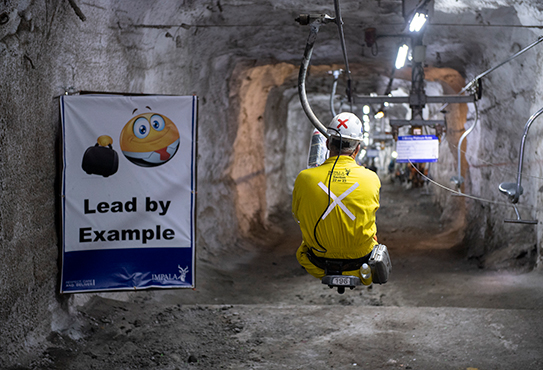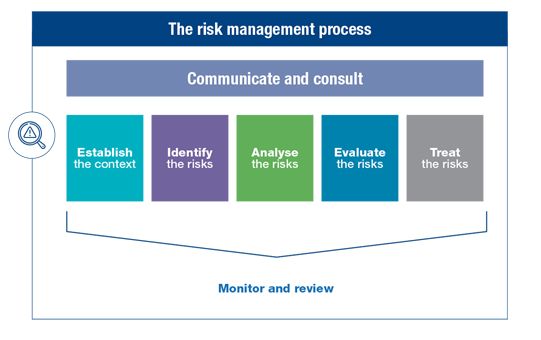Sustainability governance

Living the Implats Way
Our purpose is to create a better future. We accomplish this through the metals we produce, the way we do business and through our superior performance.
Read moreSouth Africa 0800 005 314
Zimbabwe 0772 161 630
Impala Canada 1-866-921-6714 (toll free) or email the operation at email address:
Impalacanada@integritycounts.ca to lodge complaints or grievances.
For more information on how we handle reports and protect whistleblowers, please review our Fraud, Corruption and Whistleblowing policy
Implats fosters an ethics-driven culture, which is the cornerstone for sound governance. The board sets the tone by establishing ethics standards, policies and strategic direction across the organisation. Its nomination, governance and ethics and audit and risk committees oversee the approval of codes of conduct and ethics policies and monitor key focus areas and outcomes.
No fines associated with fraud, insider trading, anti-trust or anti-competitive behaviour, market manipulation, malpractice or violations of other related industry laws or regulations
11% decrease year-on-year in fraud and theft cases recorded.
The board and the audit and risk committee are responsible for establishing the risk management process and internal controls systems, and for setting the criteria regarding risk appetite, risk tolerance and effective communication regarding all risk matters, in line with the Group’s risk management framework.

Implats is committed to upholding the human rights and the dignity of every person involved in our business and we integrate human rights risk management into our business processes and code of ethics.
Implats upholds the basic human rights enshrined by the International Labour Organisation (ILO) by implementing fair employment practices. Policies and processes ensure human rights are observed, including fair pay, the right to freedom of association and collective bargaining, the eradication of child and forced labour, and non-discrimination.
Our human rights policy:

Implats has adopted the Voluntary Principles on Security and Human Rights (VPSHR) as the benchmark for aligning our security practices with international human rights standards. In 2023, the Group commissioned a specialist to conduct a VPSHR gap analysis across all our southern African operations, including Impala Bafokeng.
Implats conducts comprehensive due diligence and on-the-ground audits to identify and mitigate OECD Annex II risks, including human rights abuses, money laundering and fraudulent misrepresentation of mineral origin. In 2025, we successfully maintained full compliance with the LPPM’s Responsible Platinum and Palladium Guidance and the RMI’s Responsible Minerals Assurance Process Standard.
Implats maintains a zero-tolerance approach to ethics violations and harassment, bullying and victimisation (HBV), as outlined in the Group’s code of ethics and HBV policy. The Group is committed to complying with all applicable legislative requirements and has implemented 24-hour toll-free ethics whistleblower and HBV hotlines for all operations.
Toll-free whistleblower hotlines (independently managed and available to all employees and external stakeholders):
South Africa |
Ethics hotline: 0800 005 314 * HBV hotline: 0800 204 069 |
|
Zimbabwe* |
0808 5500/0716 800 189/0732 220 220 | |
Canada* |
1866 921 6714 (toll free) or email impalacanada@integritycounts.ca. |
* Zimbabwe and Canada do not have separate HBV hotlines. The operations in both countries use the South African HBV hotline.
In an increasingly complex digital landscape, Implats remains steadfast in its commitment to safeguard information assets and ensure data privacy. The global escalation of cyber threats and malicious data breaches underscores the importance of a robust cybersecurity framework. In response, we continue to strengthen our defences, proactively manage cyber risks, and mitigate potential impacts on our operations and reputation.
Cybersecurity is recognised as a material risk in our Group risk register given its potential to disrupt business continuity and compromise sensitive information and intellectual property. Our board and executive leadership possess the expertise to provide strategic oversight and governance of our cybersecurity posture.
